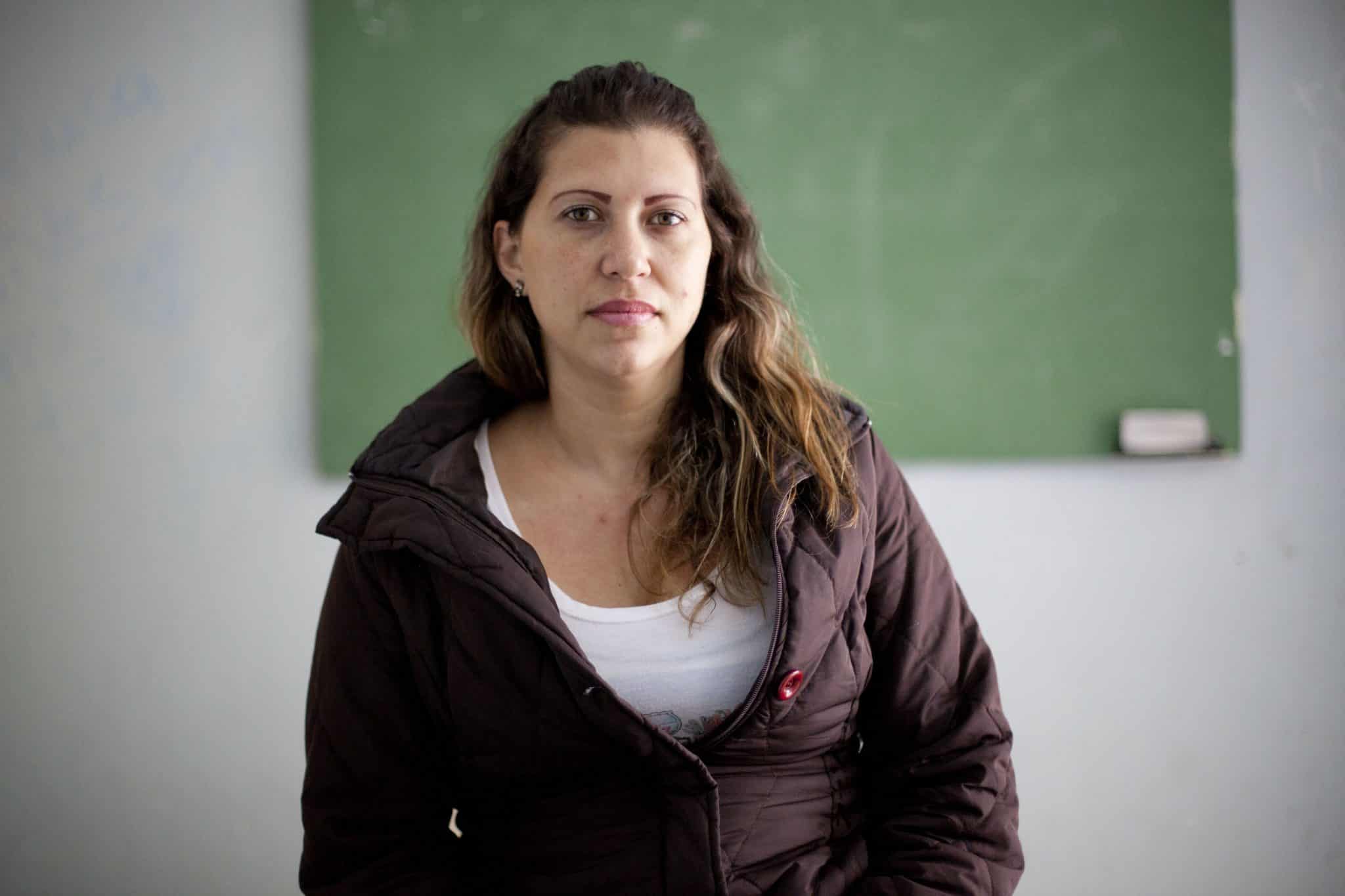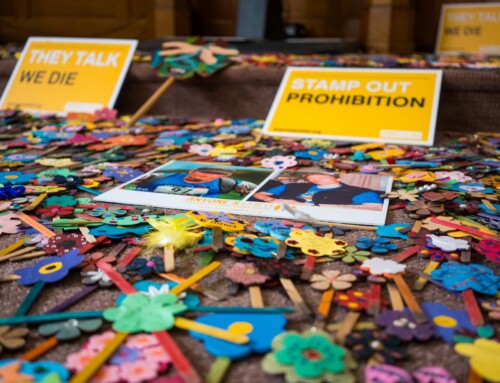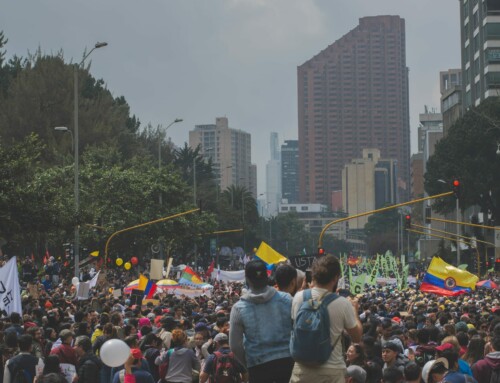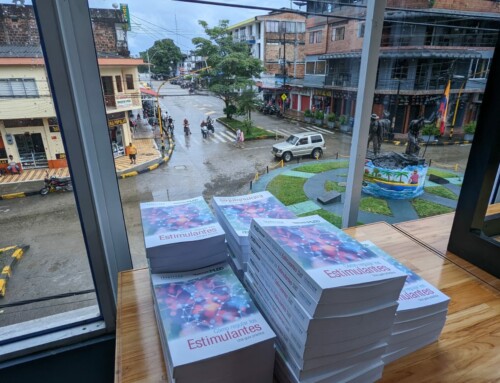This blog is adapted from our report ‘Reforming drug policies to reduce trafficking and exploitation of vulnerable people,’ to explore the intersections between drugs, women and exploitation, on International Women’s Day 2021.
To mark International Women’s Day 2021, we want to highlight women’s stories which expose the gendered dynamics of prohibition and criminalisation, and the specific vulnerabilities experienced by women as a result of this flawed policy approach. Drug policy is a feminist issue and its time to demand drug policy reforms that are centred in equality, social justice and autonomy.
Women are disproportionately imprisoned for drug supply offences around the world. This is closely linked to the fact that many women, often coming from socially or economically marginalised backgrounds, are exploited by both Organised Crime Groups and their partners into low-level illegal drug activity (usually drug dealing, smuggling or growing crops). This is what happened to Liliana, a Venezuelan woman with two children who agreed to transport drugs under the threat that her family would be harmed if she refused.
Liliana’s story
“I had a normal life, every day I took my children to school before going to work. One day a Colombian man began approaching me, sort of flirting, and saying that I should carry drugs to other countries. I said no.”
When Liliana refused, the man started threatening to hurt her family.
“My mistake was not seeking help. Little by little I gave in. If they set your life against the lives of your children, your relatives, you will choose their lives. Let them do what they want with me.”
Afraid of putting her family at risk, Liliana agreed to transport drugs to Peru. But she later realised that the original plan was not going ahead and that she’d been kidnapped by this group of people. First they took her to Caracas and then to Ecuador.
“They would tell me: remember that we know where your children are, remember that we know where your family is. First we’ll kill you and then your whole family.”
Liliana was taken to another place where they dressed her and placed vacuum-sealed packets of drugs on her. “They never talked to me about money… They brought me clothing, I had to pass off as a tourist. Maybe they put me there as a decoy so someone else with more drugs could get through. I was carrying 1 kilo 600 grams.”

Liliana. Photo from The Washington Office on Latin America
They told her she would be transporting the drugs to Georgia, Asia, with a stopover in Brazil. Before departing they changed the itinerary: her first destination would be Argentina. “They said, ‘Don’t worry, nothing will happen. There’s no scanner, no dogs, there’s nothing there.’ Even before I got to the end of the walkway, Customs and Migration officials were waiting for me.”
Liliana accepted what is known as an ‘abbreviated trial’ in Argentina, which is similar to a plea bargain. In these cases, the prosecutor offers the accused a more lenient sentence for a given offence if that person admits guilt. By accepting the plea agreement, Liliana could not explain to a judge that she had been threatened into transporting the drugs. Nor could she say that she had been confined and put under other people’s control, or that they had threatened to harm her children and relatives. During the process no one asked her about the people who had ‘hired’ her to transport drugs.
Liliana’s story speaks to a wider pattern of violence and criminalisation experienced by women in the illegal drug market. In her case, she was used simply as a decoy to divert attention from larger smuggling operations – something frequently observed in Latin America. The OCG tips off law enforcement of an expected drug delivery, identifying the woman or girl, which leads to their arrest. Therefore, OCGs actively play on drug law enforcement to circumnavigate it, and women are often the victims.
The United Nations Office on Drugs and Crime (UNODC) records that women are often forced to carry out these activities ‘through coercion or intimidation, or by being deceived into trafficking drugs unwittingly, or in an attempt to help their loved ones.’ By predominantly carrying out low-level activities in the supply chain, women are more expendable.
Zara’s story
Women in the UK are also exploited within the illegal drug trade. Women and girls who have suffered intense personal trauma, which may stem from childhood abuse or sexual violence, are particularly at risk. As Zara’s story illustrates, those who have experienced such trauma are also far more likely to get involved in problematic drug use, leaving them even more vulnerable to exploitation.
“Since I was fourteen, sex and my drug habit went hand in hand. But it was later, when I picked up heroin and crack, that everything changed. When you get that far into addiction, even the people that love you most can’t help anymore.
I came to Bristol in my twenties and fell in love with my partner. We became friends with another couple who were using too; the woman said, ‘come out on the street with me’. It was a freezing cold November, I was ill and I was desperate. I’ll never forget the feeling of absolute horror when I realised girls were selling themselves for so little money.
My reality was dawning on me. I continued on and off for about six months. I’d be affected for days, not being able to tell anyone, and the men just, uh, just made my skin crawl. I tried to stop but I couldn’t stick to it and my relapse was horrific. The using was getting really dangerous. I was badly raped and robbed by a dealer.
I started doing recovery meetings in another city but started using again. I lived in a hotel for a couple of weeks with these two drug dealers, sleeping with both of them for my drugs. A friend helped me into a dry-house – that lasted a week. I went to another friend, detoxed, used again. I was using, street-working, using, street-working…
Eventually I got help and got into treatment. It’s taken a long time to get to the point where I am even able to cry. Stuff only comes out when it’s ready. In rehab I started to look at the childhood sexual abuse with my dad. As the drugs left me, my mind cleared.”
Ending the exploitation
The criminalisation of low-level female drug offenders contributes nothing to dismantling illegal drug markets, improving public security or protecting people in situations of vulnerability. It is time to have a frank and open discussion about the scale of gender-based violence that stems directly from drug prohibition and new ways of addressing these harms.
We need drug policies that work to move people in situations of vulnerability away from the risk of exploitation, not ones that push them towards those dangers. We believe that legal regulation of the drug market is a crucial first step towards preventing the kind of interactions that create opportunities for manipulation, sexual exploitation, intimidation and debt, and can better protect women from harm.
Liliana’s story is taken from The Washington Office on Latin America’s photo essay: The Human Cost of Drug Policies in the Americas, Kidnapped and Coerced.
Zara’s story is taken from One25.
A huge thank you to the Washington Office on Latin America and One25 for sharing their case-studies with us.





Leave A Comment